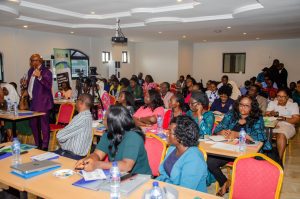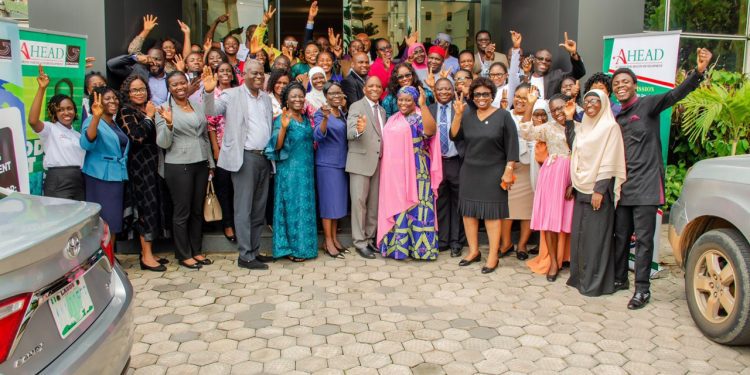The Academy for Health Development (AHEAD) has called for increased funding for Sexual and Reproductive Health (SRH) with the aim of expanding and improving access to SRH services for women of reproductive age.
Prof. Olawunmi A. Fatusi, Vice President & Ag. CEO, AHEAD, made the call during the dissemination workshop of the ‘Adding It Up (AIU)’ project and launch of the Family Planning Investment Impact Calculator (FPIIC), an innovative tool designed to estimate the impact of investing in family planning services.
The ‘Adding it Up’ report is a study by the Guttmacher Institute that provides an estimate of the need, impact, and gains of investing in sexual and reproductive health services. It illustrates the investment needed to expand and improve reproductive health services available to all women of reproductive age.
In her opening remark, Fatusi stated that Nigeria is poorly faring in the area of SRH and there is need to do more as a country to change the situation.
According to Fatusi, AHEAD has been passionate about sexual and reproductive health, policies, advocacies, and capacity building adding that it has over the last ten years embarked on various research and dissemination activities to improve sexual and reproductive health care.
Dr. Salma Anas-Kolo, Director, Family Health Department, Federal Ministry of Health, noted that despite the intervention and commitments of the government and partners, there is still a huge gap that needs to be filled regarding sexual and reproductive health.
Anas-Kolo said that the government has enacted policies and guidelines and also provided an enabling environment for stakeholders to contribute to the actualization of the goal of ensuring all its citizens have access to quality and safe health care services.
“In pursuit of the desire to improve the well-being of the citizens of this country, the federal government of Nigeria is strategizing and reprioritizing its implementation towards the integration of core components and interventions to highlight reproductive maternal, child and adolescent health throughout life course” he said.
Anas-Kolo called on private sectors and stakeholders to work collectively with the government in improving the quality of sexual and reproductive health care available for its citizens.
Presenting country-specific findings from ‘Adding It Up’ result, Prof. Adesegun Fatusi highlighted key evidence generated from the report, and also the impact of meeting women’s service needs in Nigeria.
Fatusi urged key stakeholders and advocates to utilize the AIU report as a tool for policy advocacy, and also to show the health and economic value of investing in sexual and reproductive health care at the global, regional, and country levels.
Dr. Olaitan Oyedun while demonstrating how to use the ‘Family Planning Investment Impact Calculator” described the FPIIC as an advocacy tool for greater investment in contraceptive services. He demonstrated that the tool is seamless to use and was designed to be useful for researchers, policymakers, and advocates.
“The tool is not just about the calculation that it does, it is also about how it outputs them. The results mostly come out as graphics that are ready to use immediately for advocacy. Beyond being able to provide country-level data, it is also able to provide data in regional and sub-regional level” he said.
The FPIIC is available for use by researchers, policymakers, private sectors, advocates, and other relevant stakeholders through https://www.guttmacher.org/fp-impact-calculator
The workshop had in attendance panelists, and relevant stakeholders, including health practitioners, and policymakers with discussions on the relevance of the ‘Adding It Up’ study on reproductive health practice, policy, and research in Nigeria


